
Below you will find a list of our R&D projects. If you are interested in carrying out a project with our department, we look forward to hearing from you.
The motivation for the project lies in the megatrend of sustainable development and the recently presented sustainability strategy of Styria. The project supports businesses in engaging more easily with sustainable innovations and promotes an innovation management process for sustainable tourism.
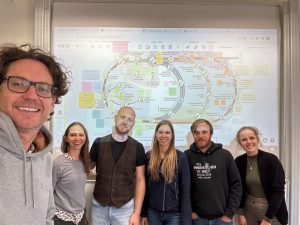
Artificial Intelligence (AI) offers a variety of benefits for small and medium-sized enterprises (SMEs). It can help them remain competitive and fully exploit their growth potential. SMEs can use AI to automate business processes, generate new ideas, and develop innovative solutions. By leveraging AI tools, SMEs can analyze large datasets and identify patterns that assist in discovering new market opportunities and developing innovative products and services. It is crucial for SMEs to recognize the potential of AI and integrate it into their innovation strategy to meet the evolving market demands and achieve sustainable growth.
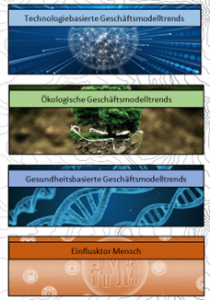
As early as 2021, FH CAMPUS 02, in collaboration with the Institute for Technology and Innovation Management (TIM) at RWTH Aachen, developed a Business Model Configurator (GMK). The GMK of FH CAMPUS 02 helps Styrian SMEs identify their own business model and outlines possible pathways to new desired versions.
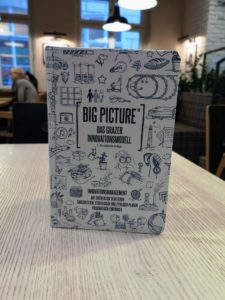
The BIG PictureTM innovation model is a holistic, strategy-oriented and cyclical model. It makes the complex topic of innovation management with its strategic integration, the possible innovation classes from incremental to radical, the operational processes and decision-making steps comprehensible at a glance.

The automotive industry is currently undergoing a rapid transformation driven by the use of AI technologies and other global trends. It is still unclear how this change will impact business models across the value chain. AI technologies have the potential to revolutionize business models in various areas of the automotive industry. Data-driven and service-based business models, enabled in part by AI, will be of essential importance for automotive companies in the future.
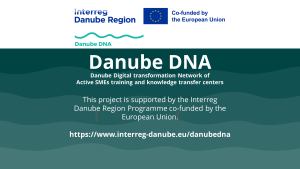
The main outputs and results of Danube DNA will include:
An established Danube DNA network of “one-stop shops” for SMEs’ digital transformation and knowledge transfer along the Danube Region. The establishment of the Danube DNA platform. Transnational guidelines for the smart specialization of the Danube Region. Knowledge transfer sessions and capacity-building organized in 12 Danube Region countries. Six joint technological solutions. Twelve pilot actions in 12 Danube countries.
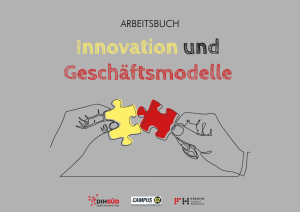
As part of this project, a guide for SMEs on the topics of innovation and business models is being developed to provide a low-threshold, time-independent, and SME-friendly access to these subjects. Instead of treating these topics separately, as is often the case, they will be presented as a mutually supportive combination and designed in an interactive format.
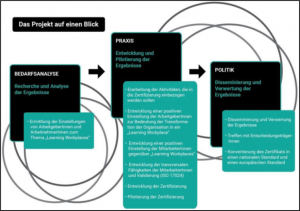
As part of the project, an approach for transforming organizations into learning workplaces is being developed. This is achieved through the design and development of an ISO certification, which can be awarded to organizations that successfully transition into learning workplaces.
PIA – Pictures of the Future for Agriculture
The PIA project aimed to identify the necessary future competency areas for digitalized agriculture. To achieve this, four different application areas of agriculture were defined: viticulture, arable farming, fruit and vegetable cultivation, and forestry.
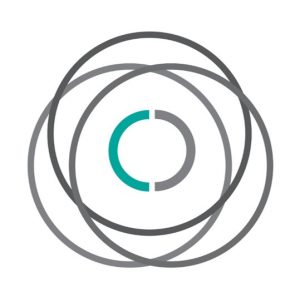

IIMPROVE! aims to strengthen the innovative power of young SMEs and start-ups in the ATHU region for digitalization, engineering and entrepreneurship. The consistent cooperation with ATHU stakeholders (research, business, policy) and excellent European mentors should contribute significantly to improved international competitiveness (products, services).
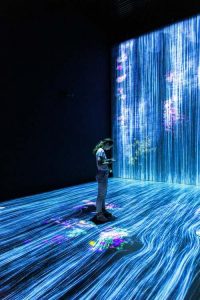
The aim of the project is to build up R&D expertise in the core areas of service engineering and data science in order to enable the combined development and innovation of smart data services (SDS). To this end, the models for service development (service engineering process model) and innovation development (Graz innovation model) developed at CAMPUS 02 University of Applied Sciences are being adapted to the new conditions and requirements of digitalization and thus also Industry 4.0.
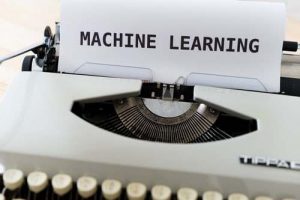
The "Safe and Intelligent Workspaces" project pursues the innovative main objective of generating basic principles and
models for creating a safe, efficient and progressive industrial working environment based on artificial intelligence and digital assistance systems as well as empirical data from Styrian industrial companies.

The probability of success of new products and services on the market depends very much on the alignment of developments with customer needs. The earlier and more structured these needs are identified in the innovation process and incorporated into development, the lower the flop rate on the market. In the FOKUS research project, a set of methods and tools suitable for SMEs was developed and tested on the basis of two specific use cases from business practice.

Shortened technology and product life cycles are increasingly forcing companies to launch new products and services on the market at short intervals. However, systematically generating ideas and quickly filtering out the right ones from many ideas in a structured manner and implementing them is a critical process with serious consequences. However, there are extensive tools and methods of "systematic innovation" that can provide significant support for this process. The Innovation Management degree program has a high level of expertise and experience in providing in-service training in this specialist discipline. Based on this expertise and the close contact with industry, special qualification measures were carried out together with the corporate partners ZETA Biotechnik GmbH, STARMANN Metallbau GmbH and AT&S Austria Technologie &Systemtechnik AG, which covered the qualification of the companies by expanding the skills of the employees of the respective engineering core team in the areas of creativity technology and TRIZ.
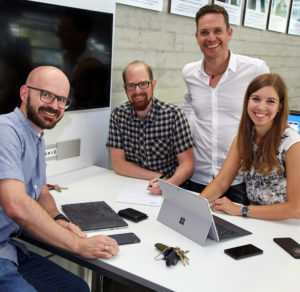
Global competition has generated a need among all the enterprises, and especially small and middle enterprises (SMEs), to adjust their strategies for their survival. There is a general belief that the future accelerated growth and sustainability of SMEs will largely depend on the use of appropriate technology and the acquisition and absorption of knowledge.
The general objective of TTTEA is to increase and upgrade skills and competences of European SMEs in the field of transnational technology transfer and accelerate public and private stakeholder organizations in increasing their responsiveness to SMEs skills needs.
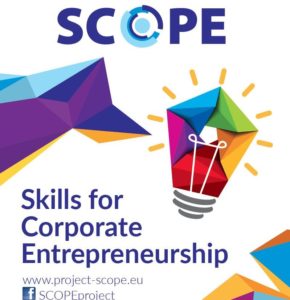
Corporate entrepreneurship is defined as the commitment of an existing company to promote innovation by raising resources for the development of new entrepreneurial ventures, new products, services or processes, the renewal of strategies and market positioning.
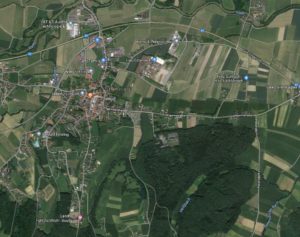
Austrian regions, characterized by small political structures and, in some cases, geographical remoteness, have often lost their technological and touristic connection. Years of attempts to counteract this negative trend have often resulted in the typical "brand" of a municipality becoming "indifferent" attempts to imitate national and international examples, which have done little to restore the strength of regional power and authenticity.
The aim of this project is to apply a completely new approach to regional and municipal development, but not to participate in an existing "regional development strategy".

There is a great need for tools that can support companies, especially small and medium-sized enterprises (SMEs), in their service pricing activities. A framework for service pricing and controlling is to be developed for these e-services, the tools of which are also useful for SMEs.

Austria's only post and telegraph museum is currently housed in Eisenerz. In this project, a strategic concept and a business plan for a possible relocation to Bruck an der Mur are being developed in cooperation with the Accounting and Controlling course at CAMPUS 02 University of Applied Sciences.

A business model innovation introduces a new logic for how a company generates value for its customers and itself. The more a GM innovation deviates from the existing business model (GM), the greater the transformation effort and the greater the risk.

As part of the DigiAgro project, funded by the Federal Ministry of Agriculture, Regions and Tourism, the Province of Styria and the European Agricultural Fund for Rural Development, JOANNEUM University of Applied Sciences and CAMPUS 02 University of Applied Sciences are conducting a series of interviews. The aim of these interviews is to assess the needs of Styrian fruit and winegrowing with regard to digital technologies and skills and to identify relevant stakeholders in Styrian fruit and winegrowing.

The global goal of Smart-Up is to strengthen young companies (<5 years) in the Austrian/Hungarian border region through support and coaching and to improve their innovation performance and to create a cross-border economic community to anchor long-term innovative and economic cooperation. The project activities create active cooperation between young companies and start-ups in both countries.

Many Styrian areas, formerly industrial or agricultural regions, are struggling with change and the associated loss of regional authenticity. To counteract this loss, it is important to recognize what is already there. Using these tangible and intangible resources innovatively to increase the region's added value is more promising than following short-term trends that have no connection to the region and its special features.

The central aim of PIA is to develop the areas of expertise required for digitalized agriculture. Using the "Picture of the Future" innovation method, a picture of the future is derived in a four-stage process.
CAMPUS 02 Fachhochschule der Wirtschaft
Head of R&D
Körblergasse 126, 8010 Graz
Follow us on:
